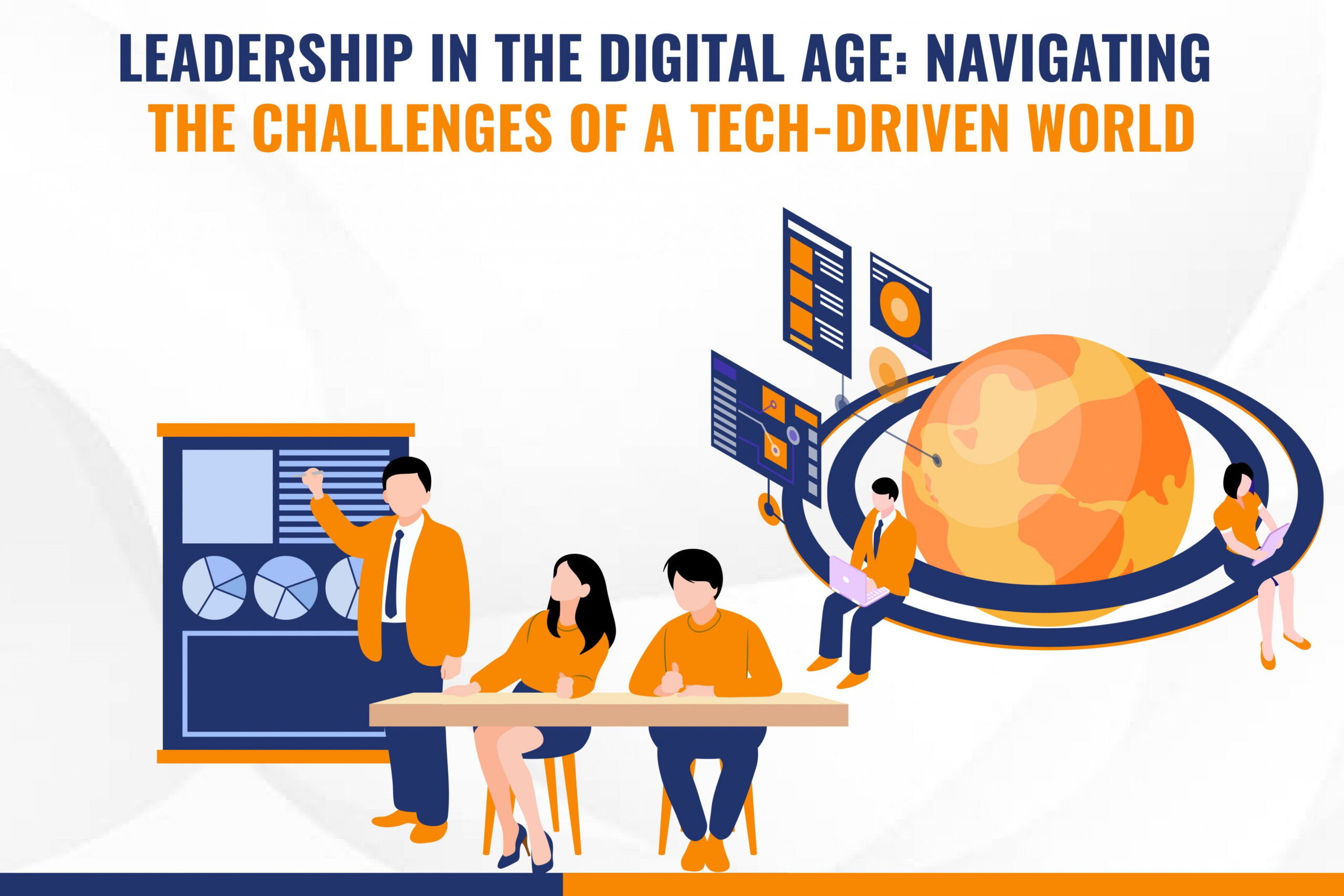
In the ever-evolving landscape of the 21st century, digital leadership has emerged as a pivotal force driving transformation across industries. As we navigate the future, the integration of artificial intelligence (AI) and advanced technologies is redefining the way we lead, innovate, and succeed. This article explores the essence of digital leadership, the impact of AI and technology, and strategies for harnessing these tools to thrive in an increasingly digital world.
Understanding Digital Leadership
Digital leadership is not just about adopting the latest technologies; it is about fostering a culture of innovation, agility, and continuous learning. Effective digital leaders possess a vision for the future, a deep understanding of technological trends, and the ability to inspire and guide their teams through change. They leverage digital tools to enhance decision-making, streamline operations, and create value for their organizations.
The Role of AI in Digital Leadership
Artificial intelligence is at the forefront of the digital revolution, offering unprecedented opportunities for growth and efficiency. AI technologies, such as machine learning, natural language processing, and data analytics, empower leaders to make data-driven decisions, predict market trends, and automate routine tasks. Here are some key areas where AI is transforming digital leadership:
- Enhanced Decision-Making: AI algorithms analyze vast amounts of data to provide actionable insights, enabling leaders to make informed decisions quickly and accurately. Predictive analytics can forecast market trends, customer behavior, and operational challenges, allowing leaders to proactively address issues and seize opportunities.
- Operational Efficiency: Automation powered by AI reduces the burden of repetitive tasks, freeing up human resources for more strategic activities. From chatbots handling customer inquiries to AI-driven supply chain management, organizations can achieve higher efficiency and productivity.
- Personalized Customer Experiences: AI enables leaders to understand and anticipate customer needs, delivering personalized experiences that foster loyalty and satisfaction. Recommendation engines, sentiment analysis, and customer segmentation are just a few examples of how AI enhances customer interactions.
- Innovation and Creativity: AI can augment human creativity by generating new ideas, designs, and solutions. For instance, AI-powered design tools can create innovative product prototypes, while machine learning algorithms can suggest novel business strategies based on market data.
Navigating Technological Advancements
Embracing digital leadership requires a strategic approach to integrating AI and technology. Here are some steps to navigate this journey effectively:
- Invest in Learning and Development: Continuous learning is crucial in the digital age. Leaders should invest in upskilling themselves and their teams, staying abreast of technological advancements and industry trends. This includes formal education, online courses, workshops, and conferences.
- Cultivate a Digital Culture: Fostering a culture that embraces digital transformation is essential. Encourage experimentation, reward innovation, and create an environment where failure is seen as a learning opportunity. This mindset will drive your organization towards continuous improvement and adaptation.
- Collaborate and Network: Building a network of technology experts, industry peers, and thought leaders can provide valuable insights and support. Collaborate with startups, tech companies, and academic institutions to stay at the cutting edge of innovation.
- Implement Agile Methodologies: Agile methodologies promote flexibility, collaboration, and rapid iteration. By adopting agile practices, leaders can respond quickly to changes, experiment with new ideas, and continuously improve processes and products.
- Prioritize Ethical AI: As AI becomes more integral to business operations, ethical considerations are paramount. Ensure transparency, fairness, and accountability in AI implementations. Develop guidelines and policies to address biases, data privacy, and the ethical use of AI.
The Future of Digital Leadership
The future of digital leadership is bright, with AI and technology playing a central role in shaping industries and societies. Leaders who embrace these tools will be better equipped to navigate the complexities of the digital age, driving innovation and creating sustainable value. Here are some emerging trends to watch:
- AI-Driven Decision Support Systems: Advanced AI systems will become integral to strategic planning and decision-making, providing leaders with real-time insights and recommendations.
- Human-AI Collaboration: The synergy between humans and AI will enhance creativity, problem-solving, and productivity. Leaders will need to balance automation with human intuition and empathy.
- Digital Twins: Virtual replicas of physical assets and processes, known as digital twins, will enable leaders to simulate scenarios, optimize operations, and predict outcomes with high accuracy.
- Blockchain for Trust and Transparency: Blockchain technology will enhance trust and transparency in transactions, supply chains, and data sharing, providing leaders with a secure and reliable foundation for digital operations.
- Sustainable Technology: The focus on sustainability will drive the adoption of green technologies and practices. Digital leaders will prioritize environmental impact and social responsibility in their strategies.
Conclusion
Embracing digital leadership is not an option but a necessity in today’s fast-paced, technology-driven world. By leveraging AI and advanced technologies, leaders can navigate the future with confidence, driving innovation, efficiency, and growth. As we move forward, the key to success lies in continuous learning, fostering a digital culture, and prioritizing ethical considerations. The future belongs to those who lead with vision, agility, and a commitment to harnessing the power of technology for the greater good.


